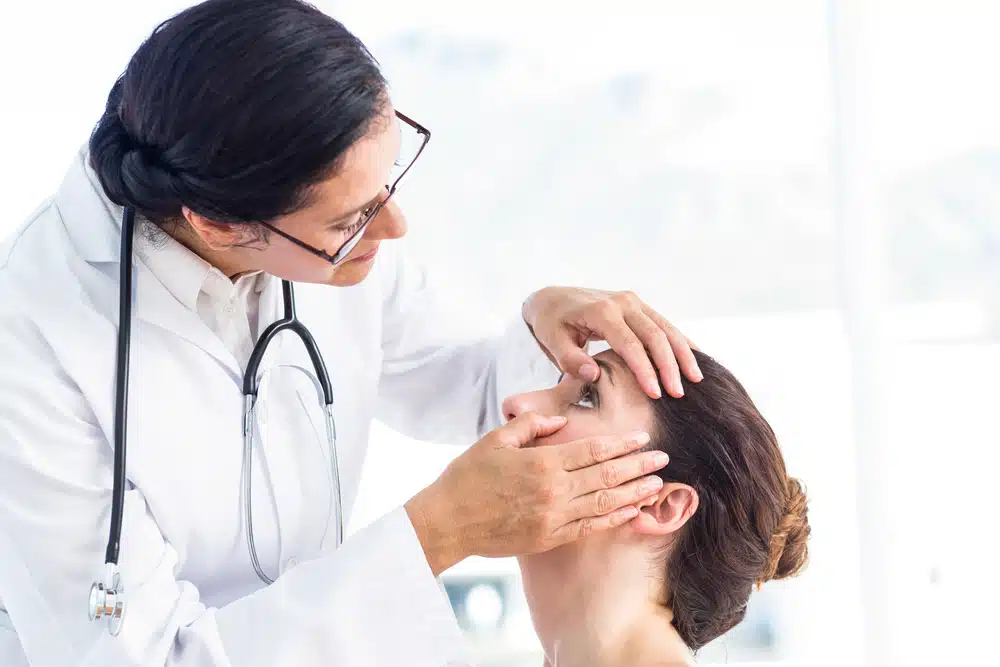All Categories
Featured

While most individuals understand the significance of safeguarding their skin from the sun, the hazardous impacts of ultraviolet (UV) rays on eye wellness usually go overlooked. Extreme exposure to UV radiation can lead to a variety of eye issues, some of which can result in long-term damage. Whether you're taking in the sun on a summer day or strolling outdoors on a cloudy afternoon, securing your eyes from UV rays is vital. Here's what you need to know about the results of UV radiation on your eyes and exactly how to protect them.
What Are UV Rays? UV rays are a type of electro-magnetic radiation given off by the sun. They are classified into 3 kinds:
UVA Rays: These penetrate deep right into the skin and eyes and can add to long-lasting damages. UVB Rays: These rays are much more extreme than UVA and are mostly responsible for surface-level damages to the eyes and skin. UVC Rays: These are one of the most damaging yet are mostly taken in by the Planet's ozone layer and do not normally reach us. UVA and UVB rays are the key culprits behind eye-related damage.
Short-Term Results of UV Direct Exposure on the Eyes. Even temporary exposure to extreme UV rays can harm your eyes. One usual condition triggered by this is photokeratitis, or "sunburn of the eye." Signs and symptoms of photokeratitis consist of:
Agonizing, red eyes. Level of sensitivity to light. Tearing or excessive watering. Short-lived vision loss or blurred vision. Photokeratitis is typically momentary, however it acts as a caution of just how damaging UV direct exposure can be, even in little dosages.
Long-Term Impacts of UV Direct Exposure. Extended exposure to UV radiation can cause more major and long-term eye problems, such as:
Cataracts: UV rays can accelerate the development of cataracts, a condition that creates clouding of the eye's natural lens, bring about blurred vision and, if unattended, blindness.

Macular Deterioration: UV direct exposure can damage the retina, particularly the macula, boosting the risk of age-related macular degeneration (AMD), which influences main vision.
Pterygium: A development of tissue on the white component of the eye that can prolong over the cornea, triggering discomfort, inflammation, and vision issues.
Pinguecula: UV direct exposure can trigger yellowish deposits to develop on the conjunctiva, bring about irritability and dryness.
Skin Cancer Cells Around the Eyes: The fragile skin bordering your eyes is highly prone to UV radiation, boosting the risk of skin cancers like basal cell cancer and squamous cell carcinoma.
Just How to Safeguard Your Eyes from UV Rays. Protecting your eyes from UV rays is basic and calls for a few mindful practices:
Purchase Quality Shades: Select sunglasses that block 100% of UVA and UVB rays. Search for tags that specify "UV 400" protection. Wrap-around styles are suitable as they obstruct UV rays from the sides too.
Use a Wide-Brimmed Hat: A hat with a border at the very least three inches vast can substantially decrease UV exposure to your eyes and face.
Limit Direct Exposure During Optimal Hours: UV rays are best between 10 a.m. and 4 p.m. If you have to be outdoors during these hours, make certain you're properly shielded.
Do Not Be Tricked by Clouds: UV rays can permeate through clouds, so it's crucial to put on sunglasses even on cloudy days.
Secure Your Eyes Year-Round: Snow, sand, and water can mirror UV rays, increasing their effects. Eye protection isn't just for sunny summer season days-- ensure you're covered in all seasons.
Use UV-Blocking Call Lenses: Numerous call lenses currently come with UV security. If you put on contacts, ask your ophthalmologist about lenses with integrated UV filters for added defense.
Encourage Eye Security for Kid: Kid's eyes are more delicate to UV rays because their lenses are more clear, permitting even more radiation to get to the retina. Ensure they wear sunglasses and hats during exterior activities.
Normal Eye Tests. Normal examinations with an eye care expert are essential for very early detection of any type of UV-related damages. An eye doctor or eye doctor can review your eyes, advise safety steps, and detect conditions like cataracts or macular degeneration early.
Verdict. By using UV-blocking sunglasses, restricting sunlight direct exposure throughout height hours, and staying regular with eye exams, you can guarantee your eyes stay healthy and your vision stays clear for years to come. Securing your eyes from UV radiation isn't just regarding comfort-- it's a vital action in maintaining your lasting eye health.
Latest Posts
Don’t Miss Exclusive Auto Repair Offers in Chicago at Montclare Auto Repair
Improve Your Home's Exterior with Weathercraft's House siding Solutions
Safeguard Your Financial Investment with Professional Rain Gutter Installation
More
Latest Posts
Don’t Miss Exclusive Auto Repair Offers in Chicago at Montclare Auto Repair
Improve Your Home's Exterior with Weathercraft's House siding Solutions
Safeguard Your Financial Investment with Professional Rain Gutter Installation